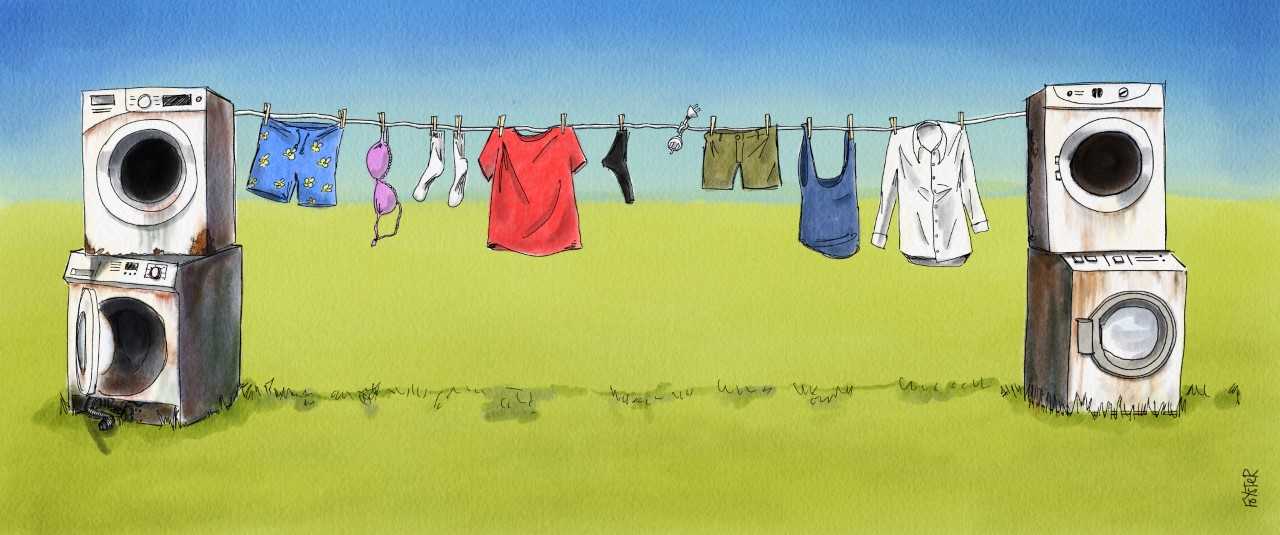How artists can rewrite the climate story
- Greg Foyster
- 07 November 2017
You've probably come across a version of this guilt trip: when there's so much injustice and destruction in the world, and so little time to change it, isn't art a trivial indulgence?
 It's a false dichotomy, of course, as if art and positive social causes cannot co-exist, and it ignores how creativity and beauty can bring meaning to even the most meagre material circumstances. But I've still found myself thinking it from time to time. When your ethics are grounded in real-world problems and each news cycle serves up fresh tragedy, art can indeed seem a guilty pleasure.
It's a false dichotomy, of course, as if art and positive social causes cannot co-exist, and it ignores how creativity and beauty can bring meaning to even the most meagre material circumstances. But I've still found myself thinking it from time to time. When your ethics are grounded in real-world problems and each news cycle serves up fresh tragedy, art can indeed seem a guilty pleasure.Last month, an interesting paper (PDF) by Dr Samuel Alexander at Melbourne Sustainable Society Institute argued the opposite — that far from being a petty distraction from the world's problems, aesthetics are a crucial part of the solution. Cultural change may in fact precede macroeconomic or political change, and art is our best tool to reimagine culture.
It begins with the premise that the human condition is inherently aesthetic because reality is experienced through the lens of language. We interpret everything through concepts and vocabularies, organised into narratives — the stories we tell ourselves about the world and our place in it. 'Cultures are, and have always been, founded upon stories, myths, and narratives that are always evolving, defining the contours of civilisation,' writes Alexander in the opening essay of Art Against Empire, which features a collection of provocative images.
To Alexander, 'politics and economics are tools in the service of story'. For example, the concepts of freedom and happiness can have different interpretations depending on the underlying 'story' of a society. If politics is partly about securing freedom, and economics is partly about advancing happiness, then how we imagine those concepts will flow through to the political and economic structures we create.
As Daniel Quinn laid bare in his great philosophical novel Ishmael, the big story of industrialisation — our foundational myth — is that we can continue to achieve rising affluence through technological progress. And so we look forward to better gadgets and more wealth, expecting each generation will have higher 'standards of living' than the last. We use the language of 'development' to imply that rich nations have reached maturity while poorer nations still have some growing to do. At an individual level, the story is of material wealth as a proxy for happiness.
Within this consumerist culture, aesthetics play a role in the sense of 'tastes'. In the 1980s, French intellectual Pierre Bourdieu demonstrated the link between taste and class: while preferences in clothing, music and literature may seem natural, children pick it up from the society around them, and so certain cultures of consumption are markers for socio-economic status. What one civilisation considers wealthy or prestigious, another may consider shameful or tasteless. Our conventions around what is a 'normal' level of consumption aren't innate but arise from culture and society.
"To change the future, we must imagine it into existence. What we need, then, is inspiring visions of a better tomorrow. For this art isn't a trivial indulgence, it's vital work."
So where does art come into it? Well it's art and artists who shape tastes. Creating a new grand narrative of a more sustainable society is an act of imagination. This cultural change will foster systemic and structural changes in other realms of human endeavour. Alexander quotes the critical theorist Herbert Marcuse, who wrote 'art cannot change the world, but it can contribute to changing the consciousness and drives of the men and women who could change the world'. Or, as the novellist J. G. Ballard wrote, 'many of the great cultural shifts that prepare the way for political change are largely aesthetic'.
Reading Alexander's essay prompted some interesting observations. First, while a lot of effort goes into campaigning for action on climate change, few people are challenging the old story of technological progress and economic growth at any cost. In fact, clean energy sources like wind farms and solar panels are widely popular partly because they fit the narrative of never-ending technological advancement. But if the environment movement ultimately wants to question this paradigm, then will all the clean energy cheerleading look counterproductive in a decade's time?
Second, while there's now a plethora of artistic responses to the environmental crisis, so much of it is negative — either criticising the excesses of the present, or predicting destruction in the future. Where are the positive stories of a new, sustainable culture? This is the greatest contribution art can make, yet for every vision of a better world there are a hundred bleak dystopias.
From a creative point of view, this kind of negative art is predictable and timid. Criticising current society and then mapping its decline is easy because the detail already exists in people's minds. You don't have to invent new social, cultural or political structures, merely show the existing ones unravelling.
On the other hand, imagining a new, better society is much more difficult because all these details have to be invented, and then they inevitably come across as impossible or unrealistic to people still immersed in the current story. That's why there are so few works of utopian fiction: it's damn hard to pull off.
But to change the future, we must imagine it into existence. What we need, then, is inspiring visions of a better tomorrow. For this art isn't a trivial indulgence, it's vital work. That's why the activist's guilt trip — that we shouldn't waste time on aesthetics when there are bigger problems in the world — isn't very helpful. Instead, we should encourage artists to engage with the social and environmental issues, creating a new story for us all.

 Greg Foyster is a Melbourne writer and the author of the book Changing Gears.
Greg Foyster is a Melbourne writer and the author of the book Changing Gears.
No comments:
Post a Comment